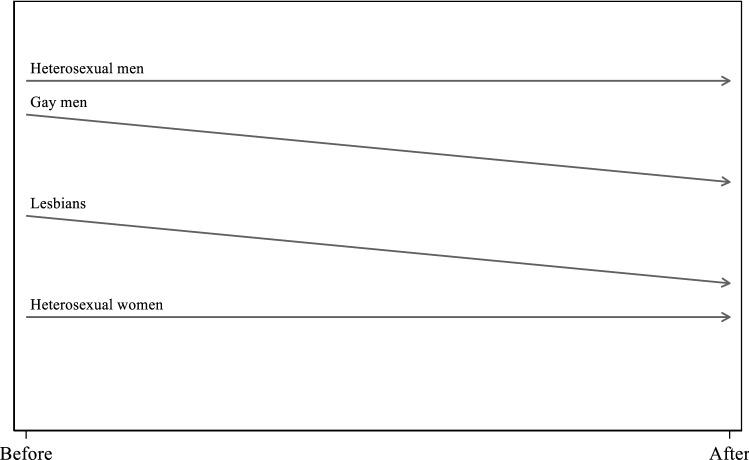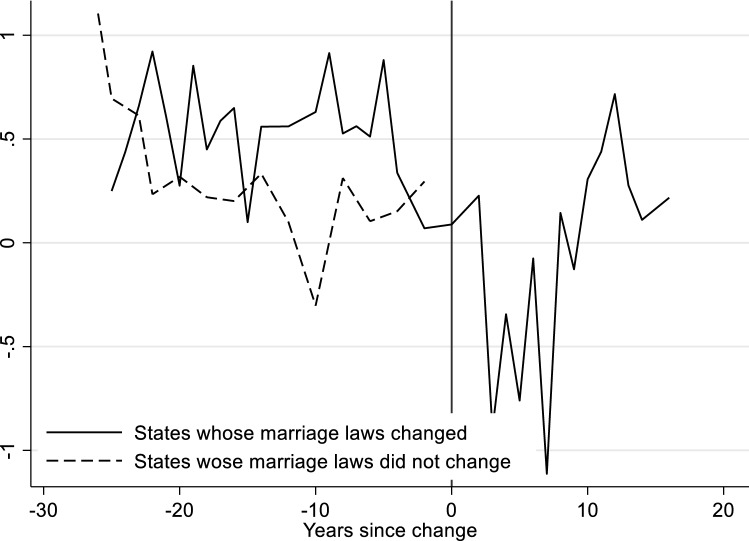同性收养法可以告诉我们美国的性别工资差距。
IF 2.9
3区 经济学
Q2 ECONOMICS
引用次数: 0
摘要
性别工资差距通常被解释为直接歧视、雇主对人格特质的偏好以及不同的劳动力依恋。我们依靠一个自然的准实验,利用州一级同性收养法的外生变化来区分性别工资差距的相互竞争的解释。根据“差异中的差异”模型的估计,在那些同性伴侣收养子女合法化的州,女同性恋和异性恋女性之间的工资差距缩小或逆转。男性的工资差距没有改变。这支持了父母身份假说作为部分性别工资差距的可行解释。本文章由计算机程序翻译,如有差异,请以英文原文为准。


What Same-Sex Adoption Laws Can Tell Us About the Gender Wage Gap in the United States.
Gender wage gaps are frequently explained as resulting from direct discrimination, employers' preferences over personality traits, and differing labor force attachment. We rely on a natural quasi-experiment using exogenous changes in state-level, same-sex adoption laws to distinguish between the competing explanations of the gender wage gap. Estimates from a differences-in-differences model show the wage gap between lesbians and heterosexual women shrank or inverted in those states which legalized adoption by same-sex couples. The wage gap did not change for men. This supports the parenthood hypothesis as a viable explanation for a portion of the gender wage gap.
求助全文
通过发布文献求助,成功后即可免费获取论文全文。
去求助
来源期刊

Journal of Family and Economic Issues
Economics, Econometrics and Finance-Economics and Econometrics
CiteScore
5.10
自引率
12.50%
发文量
67
期刊介绍:
Journal of Family and Economic Issues is an interdisciplinary publication that explores the intricate relationship between the family and its economic environment. Peer-reviewed contributions address important issues in family management, household labor and productivity, relationships between economic and non-economic issues including health and healthcare, as well as interrelations between external settings and family life, including family policy, work, and community. The journal features the following types of submissions: original research, critical reviews, brief communications, invited letters to the editor, and reviews of significant books on the field.
 求助内容:
求助内容: 应助结果提醒方式:
应助结果提醒方式:


